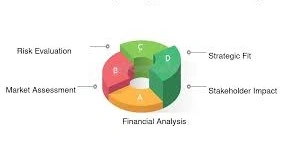Course Overview
This intensive 10-day course provides participants with the knowledge and skills necessary to conduct comprehensive project appraisals and impact evaluations. Participants will learn to design, implement, and manage effective evaluation processes, utilizing various methodologies and tools. The course also addresses the challenges and best practices in the field, preparing participants to handle complex projects and ensure their successful evaluation.
Course Duration
10 Days
Who Should Attend
- Project managers and coordinators
- Monitoring and evaluation (M&E) professionals
- Development practitioners
- Policy makers
- Donor agency representatives
- Researchers and academicians
- Consultants involved in project design and evaluation
- Government officials in charge of project oversight
- NGO staff working on project implementation and evaluation
- Professionals seeking to enhance their skills in project appraisal and impact evaluation
Course Objectives
By the end of this course, participants will be able to
- Understand the principles and concepts of project appraisal and impact evaluation.
- Apply various methodologies for project appraisal and impact evaluation.
- Design and implement evaluation frameworks tailored to specific projects.
- Conduct data collection and analysis for impact evaluation.
- Interpret and communicate evaluation results effectively to stakeholders.
- Identify and manage challenges in the evaluation process.
- Utilize software tools for data analysis and evaluation.
- Develop comprehensive evaluation reports.
- Apply best practices in monitoring and evaluation.
- Enhance the effectiveness and sustainability of projects through rigorous appraisal and evaluation. Communicate evaluation results effectively to stakeholders.
Course Outline:
Project Appraisal and Analysis
- Criteria of investment and the planning process of investments
- Identification of Technical, logistic, and environmental risks
- Analysis of economic risk
- Analysis of market risk
- Selection of projects meeting objectives of an organizations
Financial Analysis
- Income, Cash-flow, and durations estimation
- Identification of projected cash-flow risks
- Calculation of finance costs- WACC, CAPM, and Arbitrage Pricing
- Techniques of capital investments appraisal – Payback, APR, NPV, IRR
- Using spreadsheets skills for financial appraisal
Project Risk and Appraisal
- Risk and uncertainty measuring
- Constraints of a project
- Balancing scope, time, quality and cost
- Risks and uncertainty evaluation
- Planning risk response and reporting
Risk Management
- Process of risk management throughout the lifecycles of the project
- Role and responsibilities of the project manager
- Qualitative and quantitative risk analysis
- Financial risk management and derivatives
- Sensitivity analysis and the Monte Carlo Simulation analysis
Managing Uncertainties
- Using the decision tree to manage uncertainties
- Programming techniques
- manpower planning and resource smoothing and leveling
- Project contingency planning
- Earned Value Analysis
Cost Benefit Analysis
- Cost benefit analysis
- Genuine costs
- Intangible benefits measurements
- Environmental issues
- Intangible benefits in the appraisal decision making process
Development of Appropriate Models
- Developing models
- Investment opportunities modeling
- Sensitivity analysis
Appraisal Process Development
- The process
- Utilization of the appraisal process in managing risks, negotiations, and project management
- Development of own process to takeout risks
Impact Evaluation
- Introduction
- Counterfactual
- Role of impact evaluation
- Appropriate time to carryout impact evaluation
Evaluation Design
- Establishment of a program theory
- Evaluation approach selection
- Baseline survey designing
- Options lacking a baseline
- using secondary data in impact evaluation
- Function of qualitative information
- Triangulation
- Specific impact evaluation
Managing and Implementing impact Evaluation
- Reference terms
- Sources of data
- Time and cost
Customized Training
This training can be tailored to your institution needs and delivered at a location of your choice upon request.
Requirements
Participants need to be proficient in English.
Training Fee
The fee covers tuition, training materials, refreshments, lunch, and study visits. Participants are responsible for their own travel, visa, insurance, and personal expenses.
Certification
A certificate from Ideal Sense & Workplace Solutions is awarded upon successful completion.
Accommodation
Accommodation can be arranged upon request. Contact via email for reservations.
Payment
Payment should be made before the training starts, with proof of payment sent to outreach@idealsense.org.
For further inquiries, please contact us on details below:






